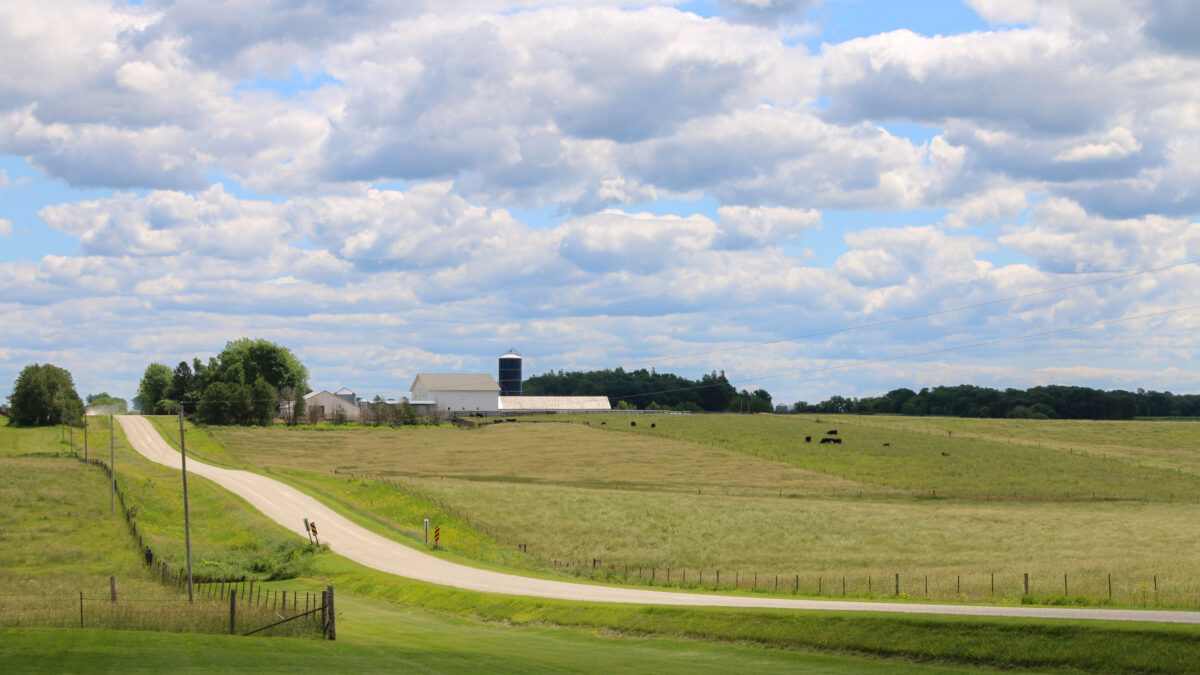The Rural-Urban Divide
Guest Author
Special Contributor to FB.org

photo credit: Alabama Farmers Federation, Used with Permission
Guest Author
Special Contributor to FB.org
By Stewart Truelsen
The election of Donald Trump as the nation’s 45th president drew attention to the rural-urban divide. It wasn’t the only dividing line in the election, but it is credited with helping Trump win.
Rural voters tended to vote Republican and urban voters Democratic in this election. The divide may have less to do with party labels and more to do with political philosophy. Rural Americans are more conservative than urban dwellers, and their priorities often differ.
A presidential election with similarities to this one occurred in 1948 when Harry Truman defeated Thomas Dewey. Only then the party labels were reversed. Truman was the Democrat running for election after serving out President Roosevelt’s last term, and Dewey was the Republican.
Both men traveled the country by train to campaign, but Dewey did so at a more leisurely pace and made far fewer speeches than Truman. By all accounts, he was a shoo-in and had nothing to worry about, although Truman was drawing large crowds wherever he went.
On a hot, sunny day in September Truman drew 90,000 for a speech at the National Plowing Contest in Dexter, Iowa. Introduced by legendary farm broadcaster Herb Plambeck, Truman unloaded on special interests and the eastern establishment. “The Wall Street reactionaries are not satisfied with being rich,” he said, “They want to increase their power and their privileges regardless of what happens to the other fellow. They are gluttons of privilege.”
The Des Moines Register said his speech was “harsh and demagogic.” A writer for the New Yorker thought the speech was “deplorable.” But Truman struck a chord with rural audiences. He had, after all, been a farmer early in his career, and had populist appeal.
Of course, there was no Twitter back then, nothing even close to it. Truman’s campaign distributed a sixteen-page, four-color comic book about his life, and that was considered innovative. In contrast to today’s politics, neither candidate engaged in name calling.
When Truman won in a huge upset, Dewey reflected that it was due to the farm vote, which he said switched sides in the last days of the campaign. The farm vote was a larger share of the electorate then, but it is still important today because farmers and ranchers get out and vote.
In an analysis after the recent election, National Public Radio said the rural-urban divide grew in 2016 from where it was in 2012 and 2008, and it was because rural counties became progressively more Republican. The NPR analysis said it was impossible to tell what is causing the widening rural-urban gap because of the number of factors related to voting patterns.
One striking similarity between the election of Truman in 1948 and Trump in 2016 is that a segment of the population felt left out or passed over by the losing party. Dewey was criticized for speaking over the heads of voters. Truman, on the other hand, played upon farmers’ fears that a Republican administration would lead to another depression, especially in farm prices.
The farm economy is always on farmers’ minds, but in the 2016 election they had other serious concerns. A major example was the regulatory overreach by the Environmental Protection Agency. It isn’t just that farmers abhorred the fines, paperwork and legal fees. They viewed EPA as a threat to private property rights. This issue was not a high priority with urban dwellers, who seldom face a loss of property rights or EPA intrusion in their affairs.
The rural-urban gap is more than just politics, of course, and attempts to bridge it go way back. Beginning in 1955, the National Farm City Council began promoting better understanding between rural and urban citizens, which included National Farm-City Week, the week leading up to Thanksgiving.
The idea was to recognize the interdependence of rural and urban communities. This is a good thing for politicians to keep in mind when running for state or national office. Cities never get overlooked in a political campaign, but rural America does. Politicians do that at their own peril.
Stewart Truelsen
Freelance writer
Stewart Truelsen is a food and agriculture freelance writer and a regular contributor to the Focus on Agriculture series.
Trending Topics
VIEW ALL